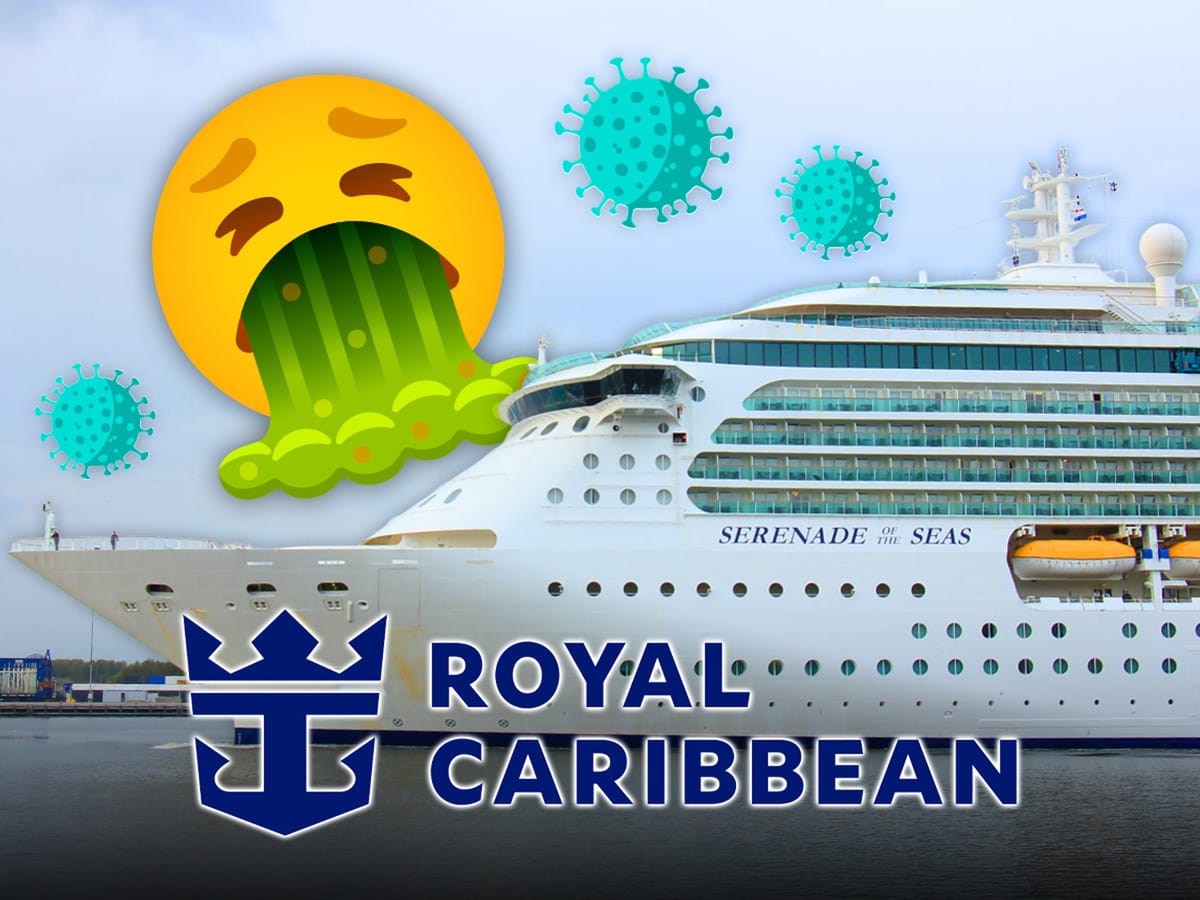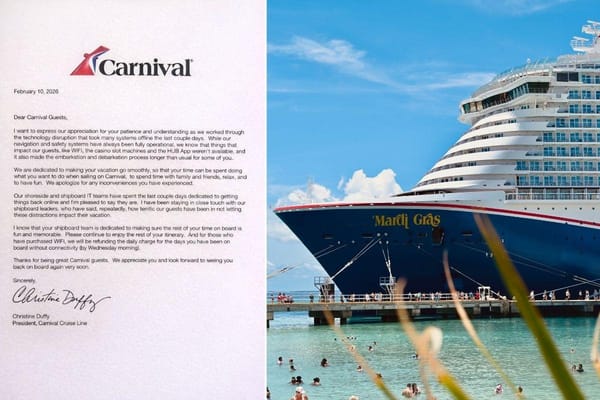Norovirus Outbreak Sickens Nearly 100 on Serenade of the Seas Cruise
The latest norovirus outbreak on Serenade of the Seas highlights the ongoing challenge of controlling infectious diseases in cruise ship environments, despite enhanced sanitation protocols.

Nearly 100 passengers and crew aboard Royal Caribbean International’s Serenade of the Seas were affected by a suspected norovirus outbreak during a 13-day repositioning cruise from San Diego to Miami, according to the U.S. Centers for Disease Control and Prevention (CDC). The incident marks the 19th gastrointestinal outbreak aboard cruise ships reported to the CDC in 2023, with 14 directly attributed to norovirus, the most frequent pathogen responsible for gastrointestinal illnesses on cruise vessels.
Norovirus Outbreak Details
The Serenade of the Seas departed San Diego on September 19, with scheduled stops in Mexico, a Panama Canal transit, and Colombia. Reports of illness began surfacing mid-cruise, particularly after its stop in Puerto Vallarta, Mexico. CDC data confirmed that 94 passengers and four crew suffered symptoms consistent with norovirus, including vomiting and diarrhea. The affected individuals represented less than 4% of the ship’s 1,874 passengers and 883 crew members.
Royal Caribbean notified the CDC of the outbreak and implemented stringent response measures, including increased sanitation protocols, isolation of ill passengers and crew, and the collection of stool samples for laboratory testing. A Royal Caribbean spokesperson emphasized their commitment to health and safety: “We implement rigorous cleaning procedures, many of which far exceed public health guidelines, and we consult regularly with CDC specialists to ensure the health of our guests and crew.”
Passenger Accounts and Impact
Bob Pettit, an 87-year-old passenger from Mooresville, North Carolina, recounted his experience during the outbreak: “It just hit so violently and so fast. I’ve never been this sick, and I’m 87 years old.” Pettit reported feeling unwell following the ship’s stop in Puerto Vallarta, suggesting buffet utensils may have contributed to the contamination despite passengers washing their hands regularly. His son Joshua, who avoided contracting the virus, described the outbreak’s effect on the onboard atmosphere: “Once passengers started falling ill, the crew quickly staffed the buffet, removed communal items like salt shakers, and carried out deep cleaning procedures.”
In an unrelated incident, the ship was diverted near Jamaica to medevac another ill passenger suffering from a different medical condition.
Norovirus Risks and Prevention
Norovirus is a highly contagious virus that causes acute gastroenteritis, resulting in symptoms such as nausea, vomiting, diarrhea, and abdominal cramps. It spreads through contaminated food, water, surfaces, or contact with infected individuals, making cruise ship environments particularly prone to outbreaks due to close quarters and shared spaces like buffets and common areas.
Symptoms typically appear within 12–48 hours of exposure and resolve within one to three days in healthy individuals. However, dehydration, a serious concern for older adults, young children, and immunocompromised individuals, can develop rapidly due to fluid loss from vomiting and diarrhea.
Experts like Dr. Jyotu Sandhu, a family medicine physician, stress the importance of preventive measures aboard cruise ships: “Crowded environments, like cruise ships, are a recipe for disaster for communicable diseases, whether respiratory illnesses like flu or gastrointestinal illnesses like norovirus.”
- Wash hands frequently with soap and water, alcohol-based sanitizers are ineffective against norovirus.
- Avoid touching shared surfaces, utensils, and objects when possible during outbreaks.
- Cook shellfish thoroughly and carefully rinse produce to reduce the risk of contamination.
- Disinfect surfaces immediately with bleach-based cleaners, as common cleaners may not deactivate norovirus.
- If symptoms arise onboard, notify the ship’s medical team promptly and follow isolation protocols.
CDC and Cruise Industry Responses
The CDC’s Vessel Sanitation Program tracks gastrointestinal outbreaks on cruise ships operating in or near U.S. waters, enabling rapid response and monitoring. Vessels are required to report outbreaks that exceed certain thresholds. In 2023, 19 gastrointestinal illness outbreaks have been documented aboard cruise ships, marking the highest annual count since 2007. Proactive measures taken by cruise operators include enhanced cleaning protocols, crew-staffed buffets, and consultations with the CDC to optimize onboard sanitation and containment efforts.
More than 20 million passengers embark on cruises from U.S. ports annually, and while the cruise industry has rebounded post-pandemic, frequent outbreaks underscore the importance of these health measures. A Royal Caribbean representative emphasized ongoing efforts by the industry: “The health and safety of our guests, crew, and the communities we visit remain our top priority, and we are always working to mitigate health risks to provide safe and enjoyable experiences.”
Frequently Asked Questions (FAQs)
How does norovirus spread aboard cruise ships?
Norovirus spreads through contaminated food or water, direct contact with infected individuals, or touching contaminated surfaces and then the mouth, nose, or eyes. On cruise ships, shared spaces and buffet utensils significantly increase transmission risks.
What actions did Royal Caribbean take during the outbreak?
The cruise operator implemented intensified cleaning procedures, staffed buffets to eliminate self-service, isolated ill passengers and crew, and consulted with the CDC’s Vessel Sanitation Program to manage the outbreak.
Is norovirus a serious illness?
While norovirus infection is typically self-limiting and lasts one to three days, dehydration can pose serious risks for vulnerable groups such as children, older adults, and people with weakened immune systems.
What preventative steps can passengers take?
Passengers can protect themselves by practicing thorough handwashing, disinfecting surfaces with bleach-based cleaners, avoiding shared utensils during outbreaks, and promptly reporting any symptoms to onboard medical staff.
Why are gastrointestinal outbreaks common on cruise ships?
Cruise ships provide an ideal environment for outbreaks due to confined spaces, high passenger density, and shared communal areas. Vigilance in hygiene practices and adherence to safety protocols helps mitigate these risks.




